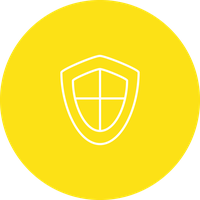
ITEA Impact story
RECONSURVE

Reconfiguring the maritime surveillance seascape



Impact highlights
- The RECONSURVE project had a large user orientation; the Turkish Coast Guard Command participated in the project as an end user, and provided invaluable guidance throughout with its domain expertise. Further exploitation is planned for 2018-2020 by Aselsan with the Turkish Coastguard and Turkish Navy.
- Through the licensing of marine terminals and analysis systems developed through the RECONSURVE project, GMT generated an income of about €1410 k.
- Before GMT started participating in EUREKA around 2011, their annual revenue was USD 4 million. Now it has more than tripled, to 14 million. And it is expected to be in the region of 20 million in 2018. This would not have happened without their involvement in projects like RECONSURVE.
- For Evitech, the income which is created by participating in the RECONSURVE project is about €1000 k.
- Participation in the RECONSURVE project helped SMEs like SRDC to enter new markets and increase their product portfolio. Furthermore, the project paved the way for further future cooperation between SMEs like Evitech with large industries like Airbus.
The rapid ongoing rise in the global surveillance and
security market is beset by a number of problems:
fragmented surveillance systems, lack of information-sharing
on standards, agreements, policies or
processes, the difficulty of detecting small vessels used
for illegal purposes or in extreme weather conditions,
uncoordinated and diverse sensor data, and the
unpredictable and constantly changing behaviour of
suspicious vessels. The challenge faced by RECONSURVE
was to develop an open interoperable maritime
surveillance framework that can enable existing systems
to share information and so improve maritime security.
Project results
The project developed a complete maritime surveillance system with situational awareness, smart sensor data processing, the ability to use several platforms with a variety of sensor types and advanced algorithm-based capabilities for unmanned aerial vehicles (UAVs) and thermal cameras. Algorithms were developed for vessel recognition integrated in a ground station for small boat detection, vessel classification and behaviour analysis, including threat assessment.
Innovation is evident in the actual integration of multimodal sensors (including UAVs) for global maritime surveillance and situational awareness, and in the development of natural human-machine interfaces for managing complex command and control systems along with a complete smart system to support command & control centres.
The technical capabilities were demonstrated in two scenarios. First, at the Turkish Coast Guard Command facilities in Antalya, Turkey, vessels revealing suspicious behaviour were detected successfully by the situational awareness component of the RECONSURVE system. A second large live demonstration was performed in Brest, France, with the participation of the French Coastguard.
Exploitation
Aselsan has improved its current portfolio with new features and capabilities, situational awareness capability and a new smart decision support functionality based on image processing and behavioural analysis. The main exploitation of the situational awareness and vessel classification component is planned for 2018-2020 with the Turkish Coastguard and Turkish Navy.
Being its first maritime surveillance project, RECONSURVE directed SRDC to this new market and encouraged the company to develop its Plug-and-Play Sensor Interoperability Platform, and increase its product portfolio. Currently, SRDC is starting marketing activities for this product.
The automation of the identification and classification data chain, developed in the context of the RECONSURVE project, has now been implemented in the AIRBUS RPAS and light mission aircraft for maritime surveillance missions. According to customer requirements, the architecture of the ground station can be customised to integrate internal or external algorithms for ship detection and classification; cooperation with Evitech and GREYC could be reinforced during future projects.
Evitech has sold several licences of the auto-tracking algorithm for military site surveillance. Evitech is proposing to reuse and improve the RECONSURVE algorithms in a joint project with Airbus. Evitech has also established a longer term cooperation with GREYC and will start a new project with them in 2018.
The French naval academy (École Navale) has exploited research in the detection of suspicious behaviour and maritime situational awareness into a large more generic approach that also considers cyber-attacks that affect maritime operational surveillance.
After RECONSURVE, GMT is expanding products and solutions for the ship safety and security authorities by improving vessel navigation pattern analysis and collision risk analysis capabilities based on information gathered from the operating systems. In addition, the improved artificial intelligence algorithm has been applied to the SMART-Navigation system of the Ministry of Maritime Affairs and Fisheries in Korea, to comprehensively analyse and monitor the maritime risk situation. Furthermore, GMT is supplying the RECONSURVE results to the Korea Coast Guard by providing a solution for managing automatic entry and departure of fishing vessels, responding to distress incidents, and the monitoring of illegal fishing.
More information
Download RECONSURVE impact storyRelated projects
RECONSURVEOrganisations
Airbus Defence & Space (France)Aselsan (Türkiye)
Ecole Navale (France)
Evitech (France)
GMT (Republic of Korea)
GREYC (France)
SRDC (Türkiye)

